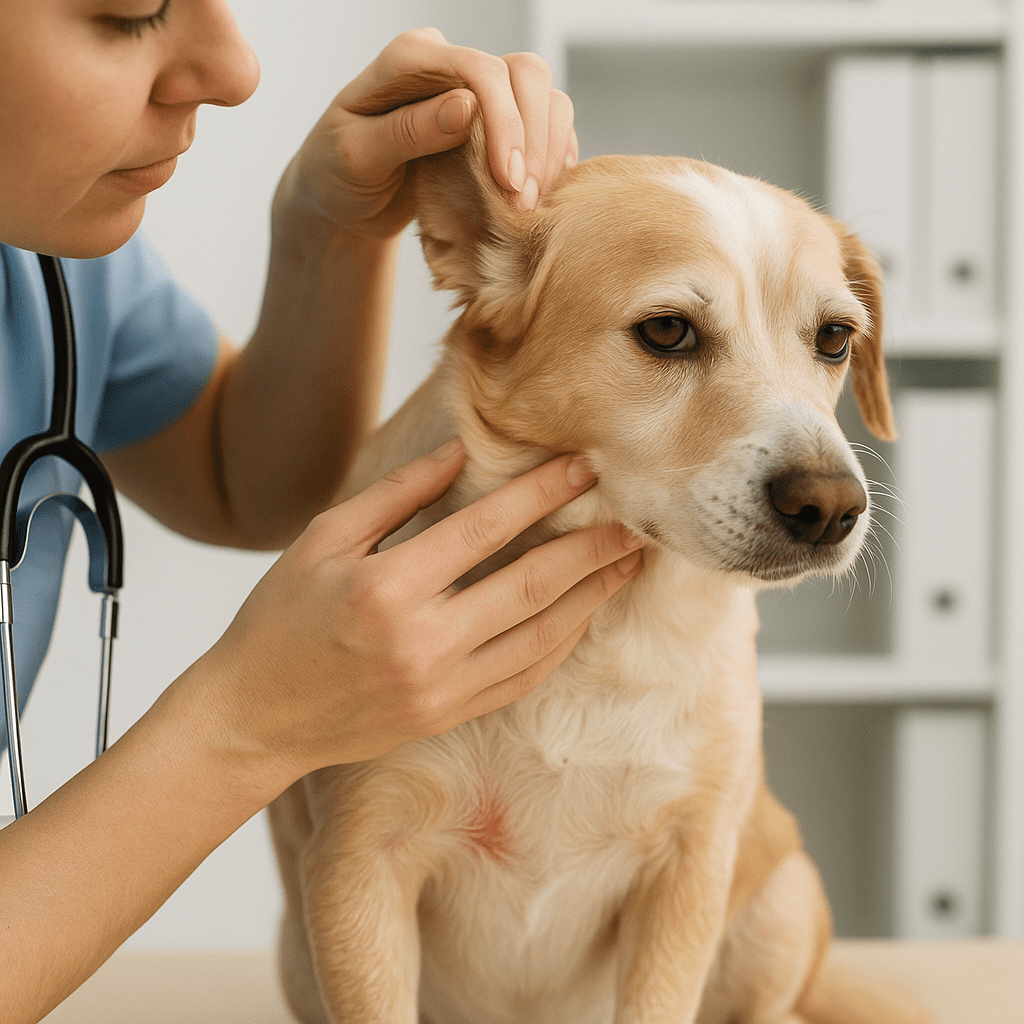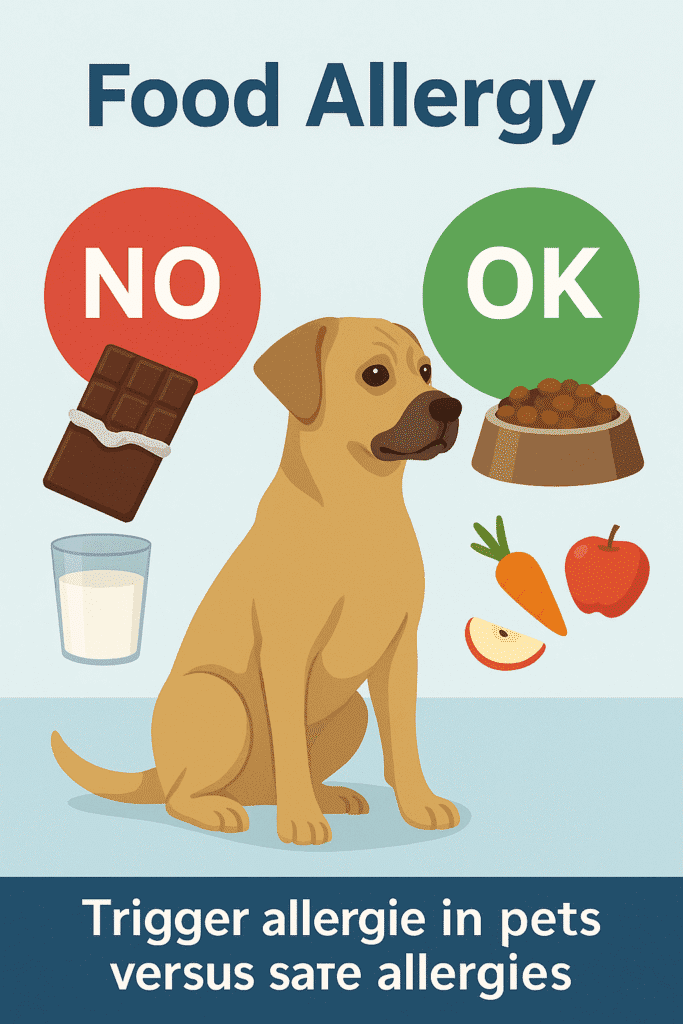Common Pet Allergies: Symptoms, Causes & Treatment Options
Summary: Pet allergies are more common than most owners realize. From itchy skin and ear infections to food sensitivities, allergies can impact your pet’s quality of life. This guide explains the symptoms, causes, and proven treatment options so you can better protect your dog or cat.

Understanding Pet Allergies
Allergies in pets occur when their immune systems overreact to normally harmless substances such as pollen, food ingredients, or flea saliva. While many pet owners associate allergies with sneezing, in dogs and cats, allergies most often show up through skin and digestive issues.
According to the American Veterinary Medical Association, millions of pets experience allergies every year, making this one of the most common health concerns.
Common Symptoms of Allergies in Pets
Recognizing early signs can help you get your pet the treatment they need. Symptoms can vary but often include:
- Excessive scratching, licking, or chewing paws
- Red, inflamed, or flaky skin
- Chronic ear infections or head shaking
- Watery eyes or frequent sneezing
- Vomiting or diarrhea (especially with food allergies)
- Hair loss or hot spots
If your pet displays these signs, a veterinary check-up is strongly recommended. Related read: Common Dog Skin Problems & Solutions.
Main Causes of Allergies in Dogs and Cats
There are three primary categories of allergies in pets:
1. Flea Allergy Dermatitis (FAD)
Just one flea bite can trigger intense itching due to sensitivity to flea saliva. This is one of the most common forms of allergies in both dogs and cats.
2. Environmental Allergies (Atopy)
Pets can be allergic to pollen, dust mites, mold spores, or grasses. These usually cause seasonal symptoms but can persist year-round if allergens are always present.
3. Food Allergies
Dogs and cats can develop reactions to certain proteins such as chicken, beef, dairy, or grains. Unlike food intolerances, true allergies involve the immune system and cause skin or digestive issues.
Treatment Options for Pet Allergies
There is no one-size-fits-all solution, but with the right veterinary plan, pets can live comfortably. Options include:
- Flea Control: Consistent flea prevention products are essential.
- Antihistamines or Steroids: Prescribed to reduce itching and inflammation.
- Hypoallergenic Diet: Food trials with limited-ingredient or hydrolyzed protein diets.
- Medicated Shampoos: Help relieve itchy skin and reduce secondary infections.
- Immunotherapy: Allergy shots customized for your pet’s allergens.
- Omega-3 Supplements: Support healthy skin and reduce inflammation.
👉 Check also: Pet Dental Care: Why Oral Health Is Essential.
How Owners Can Help at Home
While veterinary guidance is key, owners can play a big role:
- Keep bedding and floors clean to reduce dust and pollen.
- Use air purifiers in high-allergen seasons.
- Bathe pets with vet-approved shampoos.
- Avoid giving table scraps or untested treats.
- Track symptoms in a diary to help your vet with diagnosis.

FAQs About Pet Allergies
Q1: Can pets outgrow allergies?
Most pets don’t outgrow allergies. However, symptoms can often be controlled with proper management.
Q2: Are certain breeds more prone to allergies?
Yes, breeds like Labrador Retrievers, Bulldogs, and Siamese cats are more susceptible to allergic conditions.
Q3: Can over-the-counter medications help?
Never medicate pets without veterinary advice. Some human allergy meds can be dangerous for pets.
Q4: What is the best diet for food-allergic pets?
A veterinarian may recommend a limited-ingredient or prescription hydrolyzed protein diet after a strict food trial.
Conclusion
Allergies can significantly impact your pet’s quality of life, but with early recognition and the right treatment, you can help them thrive. Whether it’s flea prevention, dietary adjustments, or medical support, managing allergies is a long-term commitment. By staying observant and proactive, you ensure a healthier, happier life for your furry companion.
👉 Want more health guides? Read our article on Preventing Obesity in Pets.

